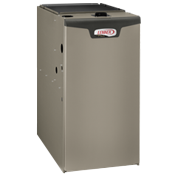Furnace Overheating? Here's Why! Explained by a NJ Tech
November 11, 2024

If your furnace is overheating, you’ve likely noticed that it is:
- Producing a burning smell
- Turning on and off frequently
- Making a humming noise
These signs are certainly cause for concern and you shouldn’t ignore them for the sake of convenience.
Here, we’ll explore some of the most common reasons your furnace could be overheating, including:
- A clogged air filter
- Old age
- Mechanical failure
How your furnace works: The basics
Before we delve into the possible reasons your furnace may be overheating, it’s helpful to understand how a furnace should function in proper working condition.
Although there are several different types of furnaces, the most common type is a gas-powered central air system.
Here’s how a gas furnace works in normal operation:
- When the internal temperature of your home drops below the temperature you’ve selected, the thermostat sends a signal to the furnace that says, “It’s time to get to work!”
- The furnace receives the thermostat’s signal, opens a gas valve and ignites the gas burners, located beneath the combustion chamber.
- The gas burners heat up a set of metal coils (called the heat exchanger), which warm the air that is pushed into your home via ducts.
- The heat flows through the vents in your home. Once your pre-selected temperature is reached, the thermostat sends another signal to shut off the furnace.
So, now that you know how your furnace should work, let’s talk about the possible reasons it’s overheating.
Reason #1: Clogged air filter
When your air filter gets clogged, it blocks air from entering the system which can cause overheating.
For example, a clogged air filter could block your furnace’s heat exchanger (the internal part of your furnace that warms the air) from getting enough access to cool air. In this case, it will overheat and automatically shut off due to its safety features.
Although this may seem like quite a simple cause for furnace problems, it’s one that can potentially wreak havoc on your furnace’s ability to do its job properly.
If your filter is clogged, your furnace and its performance will suffer in several ways:
- It will have to work harder to do its job. This means your furnace will get hotter than it should and may overheat regularly.
- Its internal components will accumulate dirt and grime. This can lead to improper ventilation, overheating and mechanical failure. The blower motor (the internal part that forces air over the heat exchanger) may also develop a thick layer of dirt and grime. As a result, it may be unable to ventilate itself which can lead to overheating or mechanical failure.
Air filters typically get clogged when you forget to change them regularly, and it’s a common problem among homeowners. However, by having your air filters regularly inspected and changing them every three, six or 12 months (depending on your filter’s size), you can avoid this issue altogether.
Reason #2: Old age
Consistent overheating may be a sign that your furnace has reached the end of its lifespan.
According to Energy Star, furnaces that receive regular maintenance and upkeep can last up to 15 years. Unfortunately, your furnace isn’t built to last forever. So, if you’ve had yours for more than 10 years, its internal parts may be wearing out and causing the overheating.
If your furnace is overheating, you may need to repair it. However, if your furnace is over the age of 10, you’ll want to consider the cost of the repair versus the cost to completely replace the furnace.
Here are our tips for how to decide whether to repair vs replace your furnace:
- If the repair is simple, it may be quite affordable and easy for you to fix your furnace and get on with your life.
- On the other hand, if the cost of the repair is high, it may be more cost-effective to upgrade to a new furnace. A general rule here is to multiply the cost of your repair by the age of your old unit (in years). If the result is more than the cost of the new furnace, you may want to consider replacing it.
If you find yourself in this situation, an honest and reliable technician should be able to provide trustworthy guidance based on your budget, needs and the condition of your existing furnace.
Reason #3: Mechanical failure
If certain parts inside your furnace are faulty or damaged, your furnace could overheat as a result.
Each working component inside your furnace serves a specific function that ensures the system will function properly as a whole. Over time with continuous use, these parts may wear down or malfunction, which can cause or contribute to overheating.
To efficiently identify and correct mechanical problems inside your furnace, you’ll need the help of an experienced technician.
Moving forward, scheduling routine tune-ups and inspections will help prevent future mechanical failures. Regular maintenance allows technicians to spot any malfunctioning parts or premature wear before they cause major issues like overheating. That way, you can just repair or replace components as recommended by a technician.
Need a furnace repair right away? Contact Air Experts
Still not sure why your furnace is overheating? You can trust the honest and timely guidance of an Air Experts technician.
We’ll help you solve the problem over the phone if we can, free of charge! Or, if the problem requires a visit from us, you can schedule a repair.
We’ll send an experienced technician to your home as quickly as we can with no downtime on your end, just like we would for a family member.

